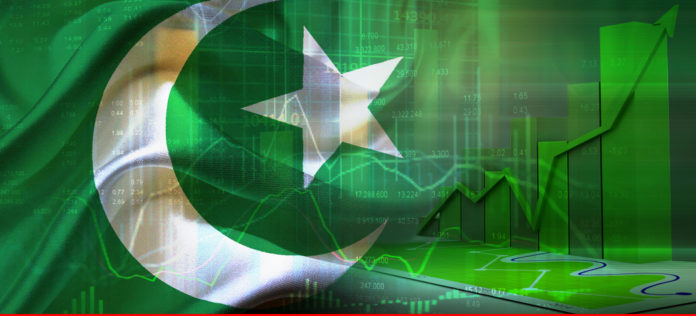
LAHORE: The Economist Intelligence Unit (EIU) has projected Pakistan’s economy to expand by an annual average of 2.9% in 2018/19‑2022/23, compared with 5.4% previously.
The advisory issued by the EIU comes amidst Pakistan’s ongoing negotiations with the International Monetary Fund (IMF) which commenced on November 7th and are expected to conclude by November 20th.
EIU stated political considerations, especially of the US may complicate the negotiations, but it expected Pakistan to clinch a $7 billion IMF bailout package by early-2019.
It added the government would likely carry out structural reforms at the IMF’s demand, however, their extent will be limited.
Consequently, due to an anticipated reduction on public spending, some projects under the China-Pakistan Economic Corridor (CPEC) would progress more slowly and isn’t likely to impact bilateral ties with China, said EIU.
On the external sector woes, EIU said it anticipated an imminent IMF programme to be amplified with other bilateral assistance and it would be the country’s 13th bailout since the late 1980’s.
Moreover, EIU believed the PTI-led government would find it difficult to implement its populist agenda of expanding social welfare provision, which includes promises of low-cost housing and new jobs.
However, it added the Washington-based lender’s core demand would be fiscal consolidation, akin to the ones made in previous bailouts obtained by Pakistan.
Also, it projected the governments move to announce a major decrease in planned development spending for FY19 and further cuts would likely bring the fiscal deficit down.
It said aside from the recent increases in gas and electricity tariffs, the IMF is likely to demand further rises to remove price distortions and manage growing arrears in the energy sector, which is dominated by public enterprises.
Alongside these expenditure reductions, the EIU projects these measures would help reduce the federal government’s fiscal deficit from 5.4% of GDP in FY18 to 4.9% in current FY19.
According to the EIU, this fiscal discipline would improve over the projected period of 2019-2023 but may undermine the PTI governments popularity.
Due to this reason, EIU said, “we expect only limited progress to be made on structural reforms in the economy, such as expanding the tax base, privatizing inefficient state-owned enterprises and rationalizing a plethora of subsidies in various sectors.”
Furthermore, an IMF bailout package would assist in stabilizing the balance of payment crisis and the government’s decision to levy wide-ranging import tariffs will slowly reduce the large import bill and a weaker rupee should ultimately enhance export receipts, said EIU.
Surmising a modest rise in remittances, EIU estimated the current account deficit will fall to $13.1 billion in 2019 against projections of $18.3 billion in 2018.
Talking about the policy interest rate, the EIU said it would peak at 14% by end of 2019 under a possible IMF programme which would hit domestic demand and curtail import growth, contributing to a dip in imports.
In addition, with fiscal austerity and tightening of monetary policy is probably going to shrink overall GDP growth sharply, said EIU.
“Negotiations with the IMF are likely to be contentious, given Pakistan’s tense relationship with the US, which has the largest voting share in the Fund’s decision-making process.
Despite concerns from China, Pakistan is likely to share some information in order to access the needed funding. Furthermore, the government may have to scale back or halt certain CPEC projects owing to constrained fiscal space. Despite this, we expect ties with China to remain cordial in 2019‑23,” said EIU.






